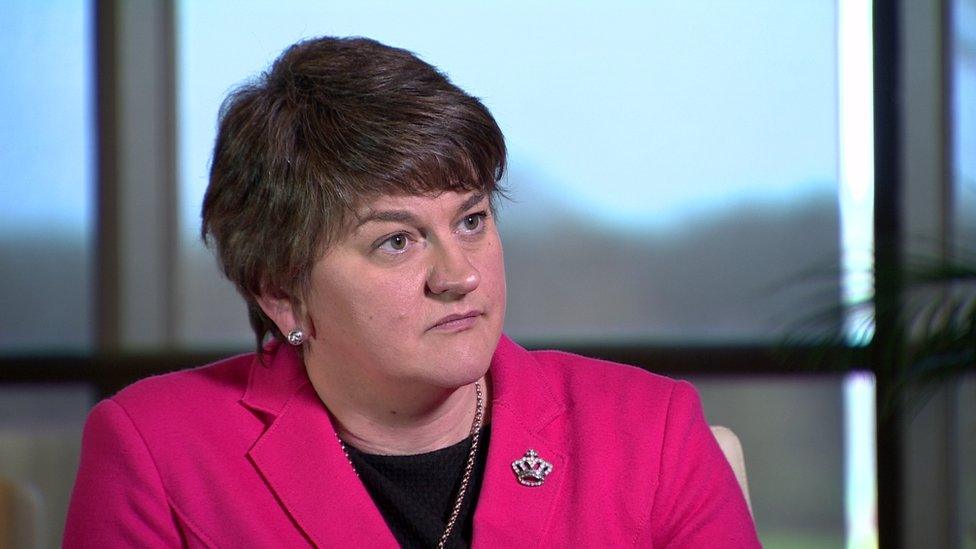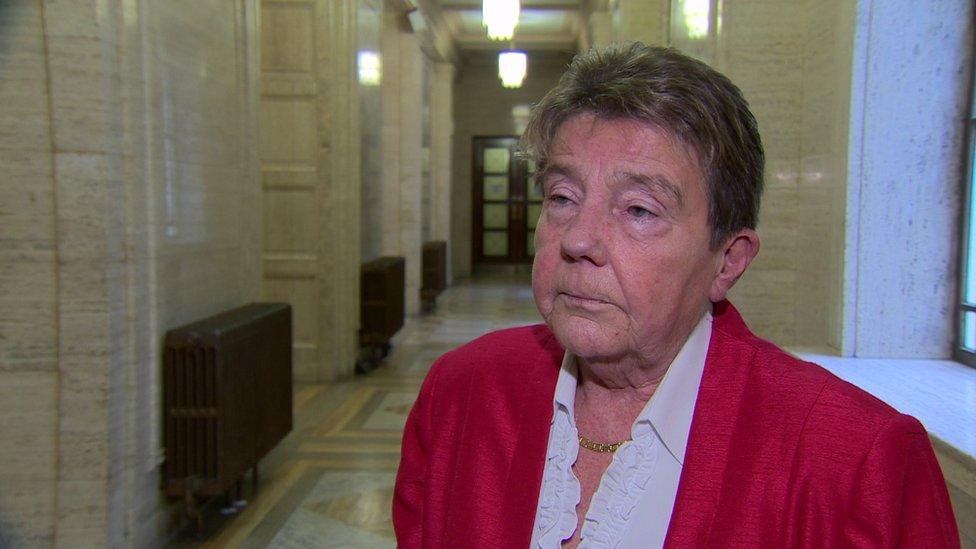NI welfare reform: Arlene Foster 'will fully implement' welfare mitigation proposals
- Published

Arlene Foster said there was a need to change the definition of a victim of the Troubles
Northern Ireland's first minister has said she will fully implement proposals for a scheme to help those who will lose money due to welfare reforms.
The proposals, published this week, are part of the Fresh Start political agreement made at Stormont last year.
Arlene Foster was concerned that some ex-paramilitaries could benefit from a proposal that those with conflict-related injuries should get a priority.
But she said it is best to go ahead with the temporary measure.
That, she said, was because of a failure to change the definition of a victim of Northern Ireland's Troubles.
Payments
"We are disappointed that others haven't joined with us in relation to the redefinition of a victim," Mrs Foster said.
"We believe that only innocent victims should be recipients of money and they should be the people we help as priority patients."

The welfare mitigation scheme has been published by a group led by Eileen Evason, a professor in social administration
About £500m has been set aside for a series of supplementary payments to carers, people suffering ill health and families on low incomes.
The scheme was drawn up by a group led by benefits expert Prof Eileen Evason.
It suggests that people with conflict-related injuries and are deemed ineligible for the new personal independence payments should get extra points to help them qualify for help.
Treatment
Mrs Foster said there had been agreement as part of the Fresh Start agreement that Prof Evason's proposals would be implemented and that situation had not changed.
She added that the "vast majority" of people who would benefit from the scheme would be "innocent victims who have suffered as a result of violence".
She said: "Do I welcome the fact that there is a very small number of people who, by their own hand, have received injuries and will receive this treatment?
"No, I don't. But that's a question for us to change the victim definition.
"[The definition of a Troubles victim] was based on Westminster legislation, something that is out of my control to change.
"We have tried to change it, we haven't had the support to do that, but we will continue to try to work through those issues."
- Published19 January 2016

- Published18 November 2015
